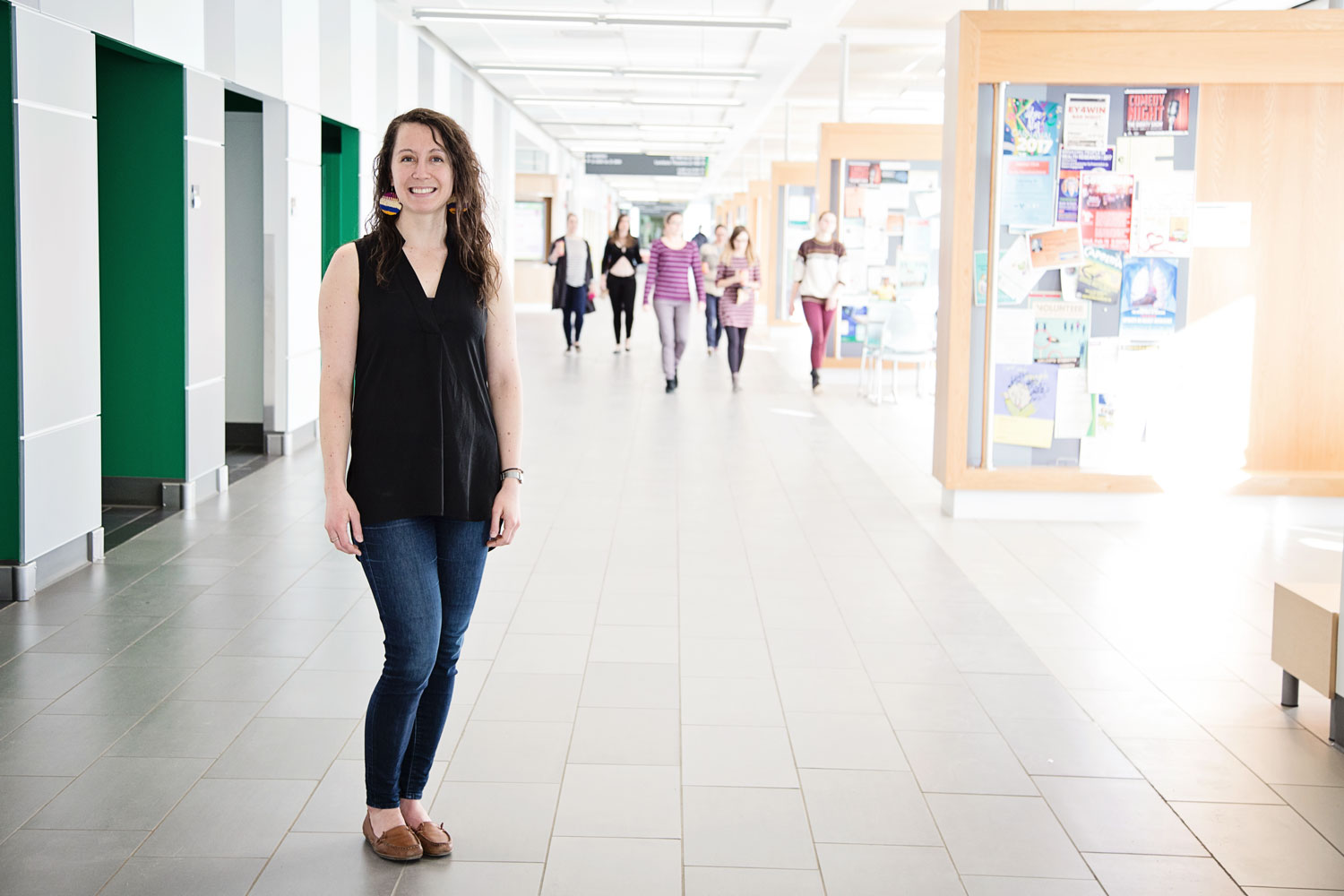
Jacqueline Noga (MSc '17) is striving to help communities in rural Tanzania gain safe access to water.
When Jacqueline Noga was a child she found inspiration and a kindred spirit in an unconventional character-the Lorax. While other nineties children may have been looking up to the Power Rangers or the characters from Recess for guidance, Noga was learning life lessons from a Dr. Seuss children's book.
Following two main characters-the Lorax and the Once-ler-the book serves as a warning about the impact of corporate greed and the dangers of disrespecting our environment. Noga feels the moral of The Lorax can be boiled down to one important line:
"Unless someone like you cares a whole awful lot,
nothing is going to get better. It's not."
It was this statement that resonated with her as a young child and has driven her to pursue the work she is doing today.
"The Lorax made me think about how important our environment is," explains Noga, recent graduate with a master of science in environmental health sciences degree. "If our environment is not healthy, we as people can't be healthy."
Noga's particular passion is to help water-challenged communities find new ways to access clean, safe water. Her thesis research involved supporting a partnership between a non-profit organization, Students Invested in Health Association, and a corporation, IDEXX Laboratories, Inc. Through field-based research, and with corporation and community in mind, Noga developed a framework for the groups to work together to improve water access, sanitation and hygiene.
"Water is our most basic human need," says Noga. "We can't have anything else until we have safe water to drink."
While conducting her research, Noga spent two field seasons in rural eastern Tanzania. During the first field season, Noga entered the community not knowing what she needed to know. She spent time talking to members of the community and developing a firm understanding of what the challenges were.
The biggest challenge for the communities was safe access to water. Community members would have to bike or walk three kilometres on sand roads to access an unprotected well. Although water quality was an issue, their primary concern was their physical distance from a water source and the cost-time and money-to access it.

The next summer she returned equipped with the knowledge the community gave her, identified challenges and barriers and worked with the community members to find solutions to these issues. It was during this field season that Noga was struck with just how complex these issues are.
"I was riding my bike to conduct interviews in one of the communities when I was passed by a large truck that was dumping water to grade the road," says Noga. "The community I was biking to didn't have access to water and yet water was being used to assist in public works infrastructure. It was frustrating, but it helped illustrate how involved the challenges truly are."
Since developing the framework and completing her degree, Noga is now back in Tanzania for her third field season as project manager with Students Invested in Health Association to finish the projects that were started during her thesis research.
"For me, this wasn't a matter of coming in, learning from the community and leaving," says Noga. "Public health has taught me that, when you're working with a community, you're part of a team. Together, we hope to implement the solutions and ideas that were developed, and ultimately address the identified issues."
And while the field of public health does offer complex challenges, Noga feels we can take a cue from the Lorax.
"Sometimes the challenges we face can be exhausting or intimidating," says Noga. "But like the Lorax, someone needs to be willing to take them on. If we don't, who will?"
Jacqueline Noga is the MSc recipient of the Dean's Gold Medal. The Dean's Gold Medal was created as a legacy initiative during the School's 10th anniversary celebrations. The award is intended to recognize superior academic performance.